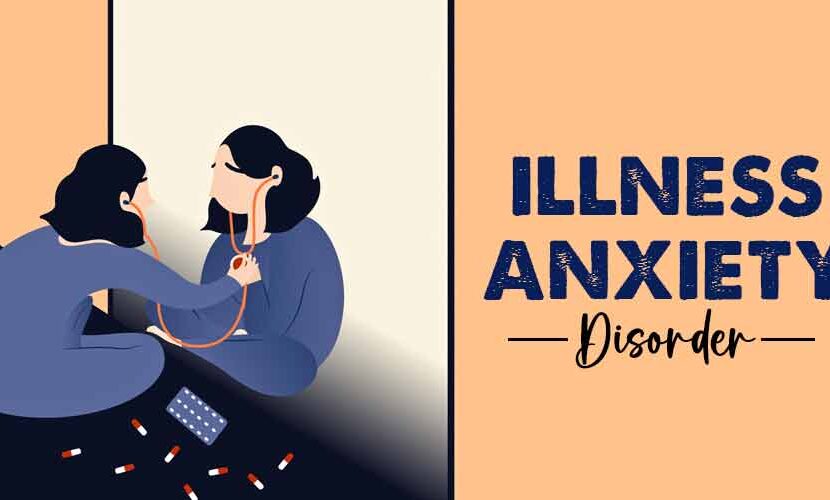Illness anxiety disorder, also known as hypochondriasis or health anxiety disorder, is a mental health condition where individuals are excessively preoccupied with the fear of having or developing a serious illness. Despite medical reassurance, they often remain unconvinced about their health, lead to significant distress. Recognizing the symptoms, understanding its impact on mental health, and exploring treatment options can help in managing this condition effectively. Let’s understand illness anxiety disorder and treatment.
What is Illness Anxiety Disorder?
Illness anxiety disorder (F45.21) is characterized by an overwhelming fear of being seriously ill despite little or no evidence to support this belief. Those individuals who are affected may misinterpret normal bodily sensations or minor symptoms as signs of severe illnesses. This disorder can significantly interfere with daily life, relationships, & mental well-being, and require timely intervention.
Symptoms of Illness Anxiety Disorder
- Excessive Health Worry
- Persistent fear of having a serious illness, often without any medical proof.
- Frequent thoughts about health that dominate daily life, even during leisure activities.
2. Misinterpretation of Normal Sensations
- Believing that common bodily sensations e.g., a headache is a indication of severe illness.
- Constant preoccupation and scanning of the body for symptoms, lead to heightened anxiety.
3. Reassurance-Seeking Behavior
- Regularly visiting doctors for repeated tests and seeking second opinions.
- Continuously asking family or friends for validation about their health concerns.
4. Avoidance of Medical Situations
- Some individuals avoid medical settings altogether due to fear of bad news.
- Hesitation or refusal to undergo tests despite symptoms worsening.
5. Impact on Social and Professional Life
- Difficulty concentrating on work or maintaining relationships due to health preoccupation.
- Withdrawal from social activities, lead to isolation.
How Illness Anxiety Disorder Affects Mental Health
- Chronic Stress and Anxiety
- Constant worry about health results in heightened stress levels.
- Overthinking minor symptoms leads to a perpetual state of fear.
2. Depression and Hopelessness
- Feeling of despair arise when medical reassurances are perceived as inadequate.
- A belief that no one understands their struggle can exacerbate loneliness.
3. Low Self-Esteem
- Criticizing themselves for their fears, feeling guilty or ashamed of their behavior.
- Viewing themselves as a burden to others, which deepens mental distress.
4. Sleep Disturbances
- Excessive worry often leads to insomnia or disrupted sleep patterns.
- Lack of rest further impairs cognitive functioning and emotional regulation.
5. Impact on Decision-Making
- Overwhelming anxiety can make even simple choices, like diet or exercise, difficult.
- Fear of aggravating perceived illnesses may lead to avoidance of physical activity.
Treatment Approaches for Illness Anxiety Disorder
Effective management of illness anxiety disorder often involves a combination of therapeutic and medical interventions:
- Cognitive Behavioral Therapy (CBT)
2. Medication
3. Mindfulness and Relaxation Techniques
4. Regular Medical Check-Ins
Illness anxiety disorder is a challenging mental health condition that affects individuals deeply, both emotionally and socially. Recognizing the symptoms and their impact is the first step toward recovery. With appropriate treatment, including therapy, medication, and support, individuals can regain control over their lives and reduce their health-related anxieties. If you or someone you know is struggling with illness anxiety disorder, seeking professional help is essential for effective management.



